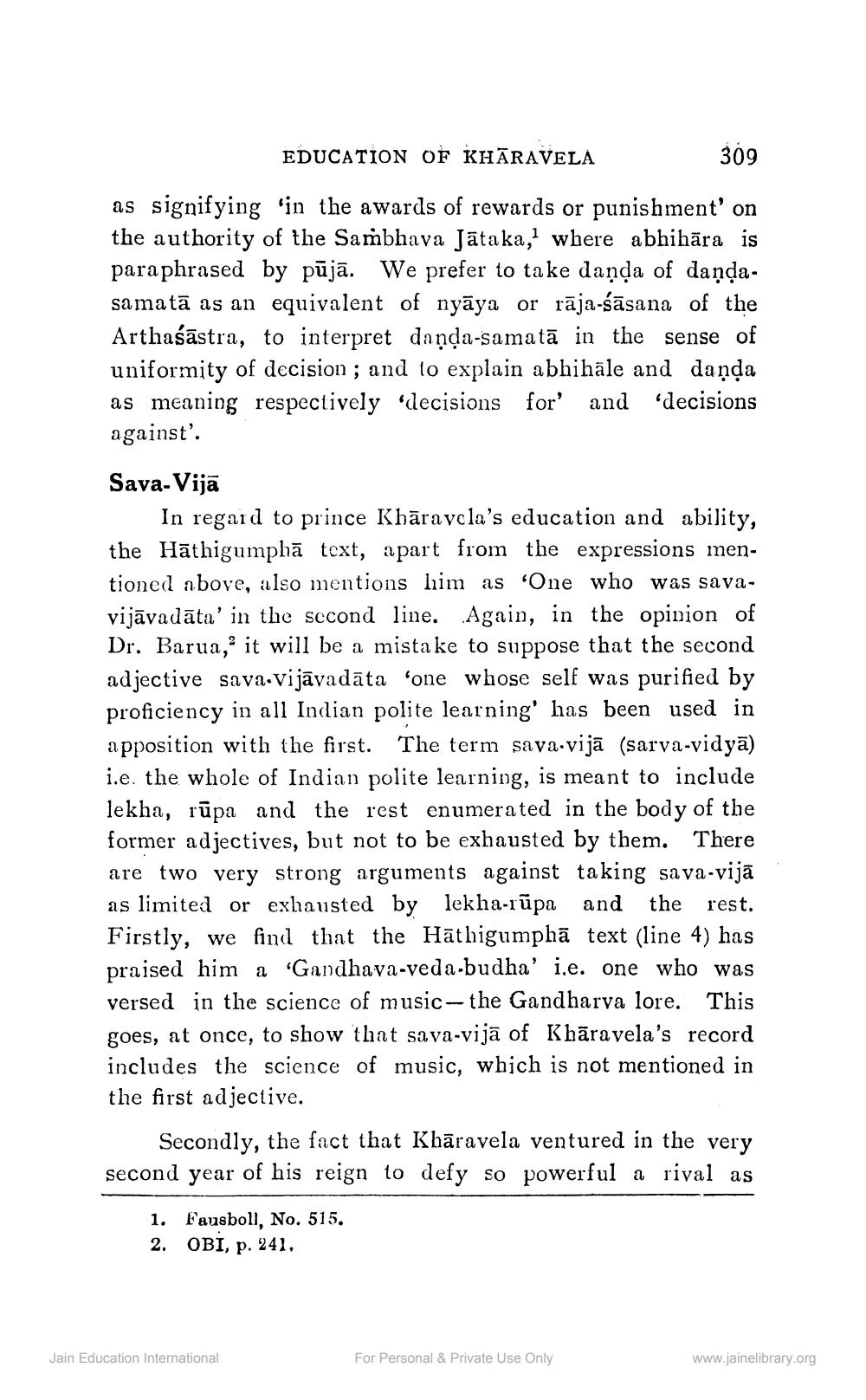________________
EDUCATION OÈ KHĀRAVELA
309 as signifying 'in the awards of rewards or punishment' on the authority of the Sambhava Jātaka, where abhihāra is paraphrased by pūjā. We prefer to take daņda of daņdasamatā as an equivalent of nyāya or rāja-śāsana of the Arthaśāstra, to interpret daņda-samatā in the sense of uniformity of decision; and to explain abhihāle and danda as meaning respectively decisions for' and 'decisions against'. Sava-Vijā
In regard to prince Khāravela's education and ability, the Hāthigumphā text, apart from the expressions mentioned above, also mentions him as 'One who was savavijāvadāta' in the second line. Again, in the opinion of Dr. Barua,it will be a mistake to suppose that the second adjective sava.vijāvadāta 'one whose self was purified by proficiency in all Indian polite learning' has been used in apposition with the first. The term sava.vijā (sarva-vidyā) i.e. the whole of Indian polite learning, is meant to include lekha, rūpa and the rest enumerated in the body of the former adjectives, but not to be exhausted by them. There are two very strong arguments against taking sava-vijā as limited or exhausted by lekha-rūpa and the rest. Firstly, we find that the Hāthigumphā text (line 4) has praised him a 'Gandhava-veda-budha' i.e. one who was versed in the science of music-- the Gandharva lore. This goes, at once, to show that sava-vijā of Khāravela's record includes the science of music, which is not mentioned in the first adjective.
Secondly, the fact that Khāravela ventured in the very second year of his reign to defy so powerful a rival as
1. Fausboll, No. 515. 2. OBI, p. 241.
Jain Education International
For Personal & Private Use Only
www.jainelibrary.org




